Coffee is the secret to supercharging your soil
Even your soil can use a good cup of coffee in the morning. Find out how to utilise ground coffee waste in your quest for a nutrient-dense soil.
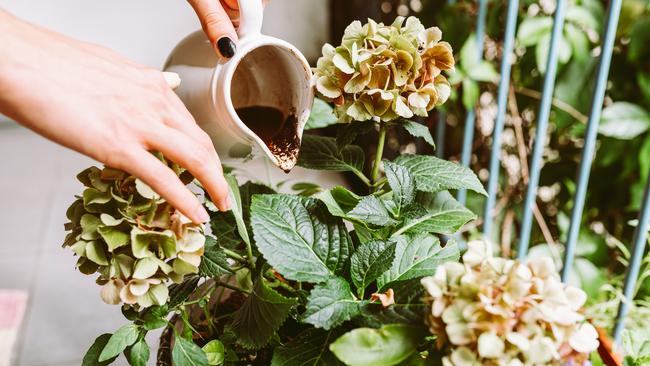
Australians generate 75,000 tonnes of ground coffee waste every year, according to RMIT University. And gardeners can tap this resource at home. Cafes often tout the benefits of spreading used coffee grounds in the garden, but applied fresh they actually inhibit the growth of seedlings and small plants due to their caffeine, chlorogenic acid and tannins. The answer is composting, which dissipates these substances in the spent grounds, leaving an excellent source of organic matter that will improve soil structure, increase water and nutrient holding capacity and boost biological activity. Spent coffee grounds have useful levels of nitrogen plus trace amounts of phosphorus, potassium, magnesium and copper. Although slightly acidic, they’re unlikely to affect soil pH. Add them to the compost heap or worm farms in small quantities. Or, if you have a patch lying fallow for several months and want to reduce weed growth, mulching with a thin layer of coffee grounds is a great idea. Neutrog’s Human Beans is an Australian fertiliser made from recycled coffee grounds, composted chicken manure and beneficial microbes.
Pretty in Pink
The Australian-bred Happy Bells collection of fuchsias offers compact plants and prolific flowering; they’re ideal for containers and small gardens in light shade.
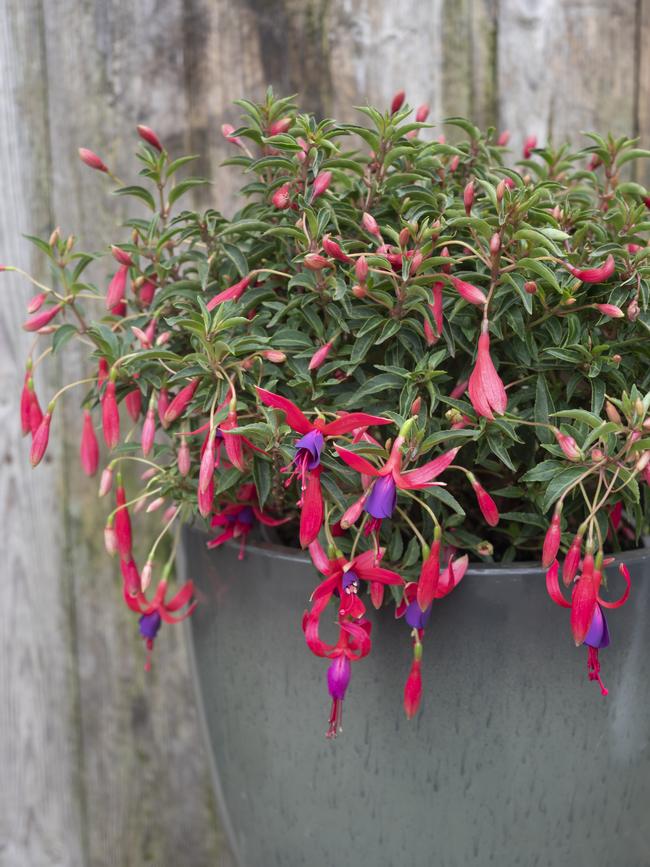
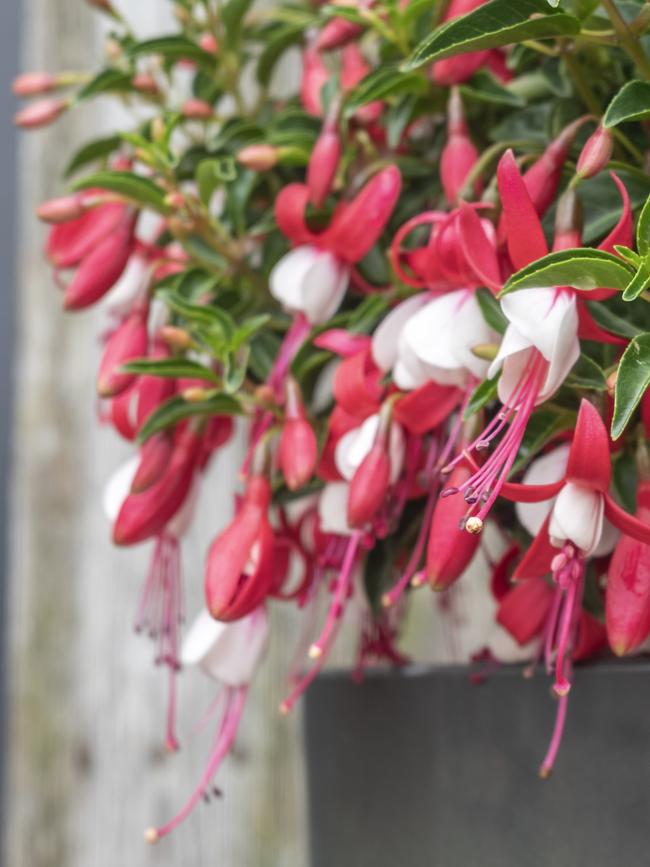
They burst into flower in spring and continue flowering for most of the year.
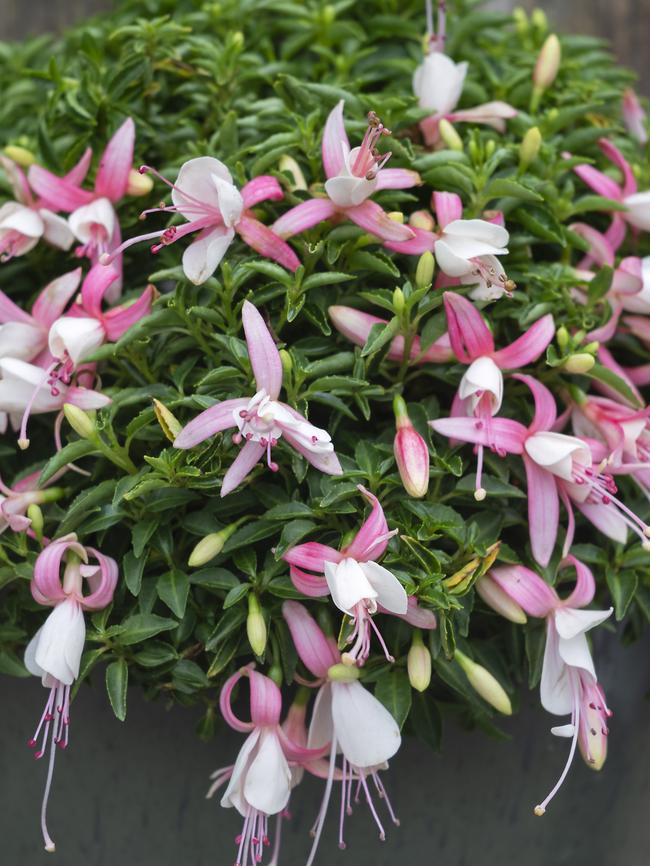
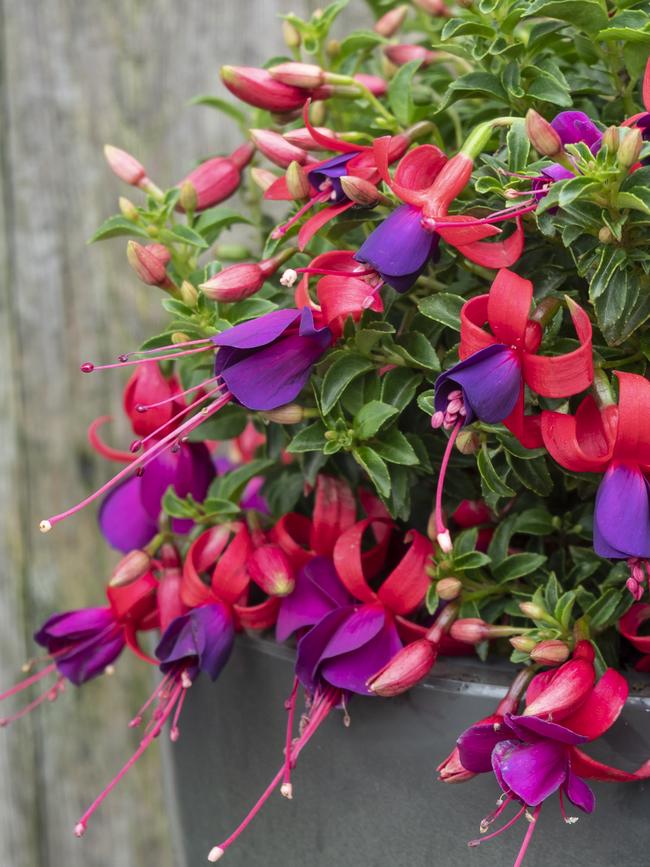
Q&A
I’ve never used ash or coals from wood fires in the garden as a compost, but others swear by it. Does it increase the pH?
Craig Gumley, Perth
Wood ash supplies useful potassium and some phosphorus but the significant amount of soluble calcium in it makes it alkaline, raising the soil pH quickly. Applied sparingly (say a handful per square metre), wood ash can be beneficial if your soil is acidic (5.5 or below) and your plants are not acid-lovers. You can sprinkle an occasional layer into the compost heap.
You sometimes mention we should test our soil for pH. What’s the best way to do this? Also, do citrus skins make compost acidic?
Ian Mortess, by email
Simple home testing kits for soil pH are available at hardware and garden stores for under $30. Manutec and Inoculo Laboratories are established brands. These contain an indicator liquid and powder, instructions for sampling soil and a colour-matching results chart. You can also buy electronic probes, which sometimes also measure moisture levels. The cheap ones are not very accurate but those from scientific instrument suppliers are; starting at about $100, you generally find that the more expensive they are, the more accurate they are. At neutral pH of 6 to 7, plants can effectively take up all the important nutrients, whereas strongly acidic or alkaline soils “lock up” certain nutrients, making them unavailable to plants. As for the last part of your question, avoiding citrus (and onions) in compost or worm farms is an entrenched myth. They’re fine as one of the various components; cutting them up speeds decomposition.
How deep should root barrier be in order to contain bamboo?
Mark Davis, by email
A depth of 500-600mm is recommended, with
100mm above ground. Bamboo rhizomes are generally about 300mm deep, but can be deeper near water sources and retaining walls.
Send your questions to: helenyoungtwig@gmail.com. The best question for August wins a copy of Blossom by Adriana Picker and her previous book Petal, together worth $90, from Hardie Grant.
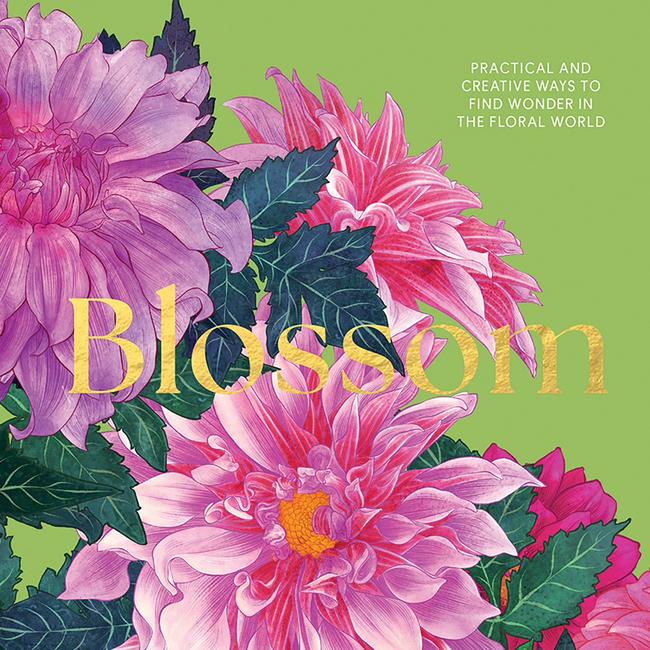




To join the conversation, please log in. Don't have an account? Register
Join the conversation, you are commenting as Logout